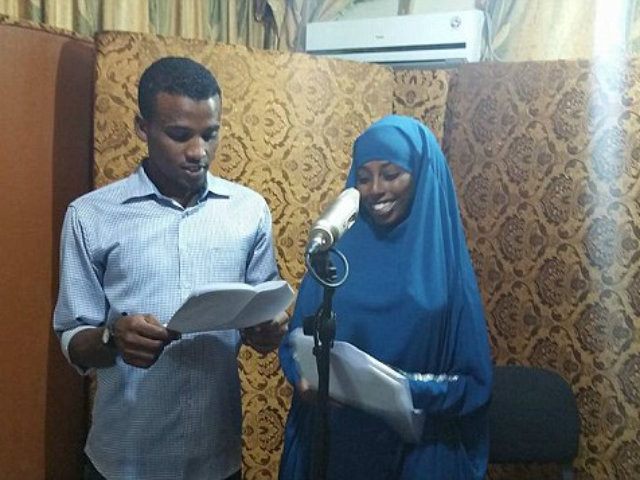A BBC department that produced a radio drama giving practical tips to would-be migrants on how to cross from Somalia to Europe received nearly £90 million of British tax payers’ money. The drama, broadcast to Somalia and Kenya at the height of the migrant crisis, featured one character advising a woman to travel only with small luggage to make the illegal crossing easier.
The drama, broadcast to Somalia and Kenya at the height of the migrant crisis, featured one character advising a woman to travel only with small luggage to make the illegal crossing easier.
Another character is later advised that “this current time is the best opportunity to reach Europe”.
The drama is produced by BBC Media Action, the broadcaster’s charitable arm, which is funded by the British government’s foreign aid budget.
Titled ‘A Better Life than Today’, it follows the fortunes of a group of Somali youths and has more than two million listeners on BBC Radio Somali.
Although some characters do warn against illegal immigration, a constant theme of the drama is the longing for a better, more prosperous life in Europe.
In one episode, a woman asks a friend: “So what do the women who make the journey… look like?”
Her friend responds: “They carry large suitcases! I would advise you to carry a small bag with a few items… If you have long hair, cut it shorter. You won’t have anywhere to brush it… whatever is difficult will end up being easy.”
The would-be migrant responds: “What am I scared of? I, too, must go there.”
A man later tells a young woman: ‘This current time is the best opportunity to reach Europe… when the seas are calm. All in all, migration can change your life.’
Conservative MP Andrew Bridgen told the Mail on Sunday: “If the BBC have been involved in a UK Government-backed programme which has in some way encouraged emigration to the UK and Europe from Africa, that would be seen as highly inappropriate with the current migrant crisis.”
A spokesman for the government responded: “It is entirely wrong to suggest that this programme is urging Somalis to migrate; in fact one of its central messages is about the dangers of migration.”
This is just the latest problem to hit Britain’s increasingly controversial foreign aid budget.
Earlier this year, campaigners urged the government to stop giving foreign aid to countries where Christian persecution is rife, fearing the money only helps the oppressors.
Christian charity Open Doors documented the rise of anti-Christian persecution across Africa and the Middle East and produced a list of 50 most dangerous countries for Christians. CEO Lisa Pearce highlighted the fact the majority of these countries receive substantial amounts of funding from the UK.
“We have influence. We must not sit on the sidelines while Christianity is quietly eroded around the world,” she said.

































